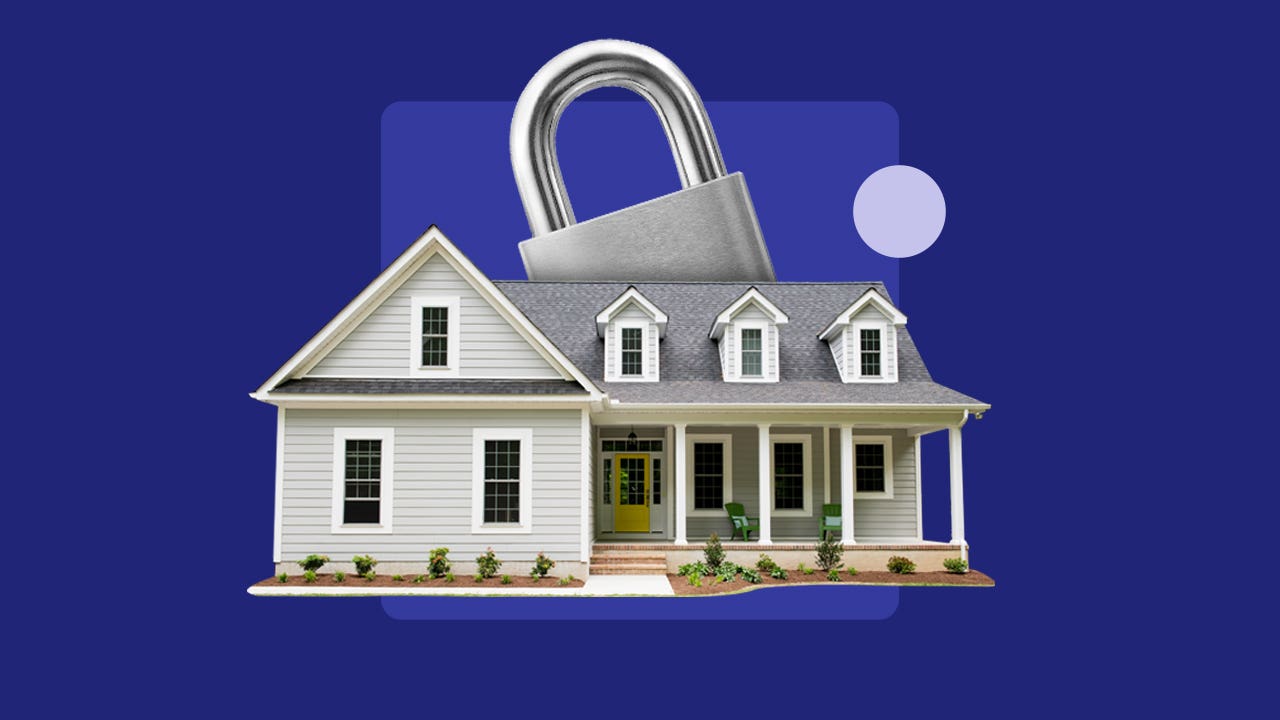Escrow insurance: What is it and when do you need it?

If you’re in the process of purchasing a home, you may have heard of escrow. Instead of paying taxes, homeowners insurance and mortgage insurance separately, these expenses typically come out of a single legal holding account, referred to as an escrow account. Your mortgage lender might require you to establish one before closing, so it helps to understand what is included and whether you should continue making your homeowners insurance payments through escrow once you’ve paid off your mortgage.
What is a homeowners insurance escrow account?
There are several different types of escrow accounts to help people and corporations protect their assets during financial transactions. Landlords can keep security deposits in rental escrows and there are escrowed shares for stock purchases, just to name a few. The most common types of escrow accounts used in real estate are:
- Real estate escrow
- Mortgage escrow
The real estate escrow, also known as a pre-sale escrow, is designed to protect the buyer and the seller if the purchase falls through. Sellers can request earnest money as a show of good faith from the buyer. The earnest money goes into an escrow account controlled by a third party. Upon closing, the money is applied to the downpayment for the home. If the home purchase falls through, those funds may be returned to the buyer or paid to the seller, depending on the agreement.
A mortgage escrow is a holding account established by the lender and is the type of account we will refer to for the rest of this article. For mortgages that have an escrow account, your monthly payments are divided into three parts: principal, interest and escrow. The escrow account can include funds for expenses like property taxes, mortgage insurance, homeowners insurance, HOA fees and flood insurance.
How does an escrow account pay for homeowners insurance?
Mortgage lenders generally require that you maintain homeowners insurance. The mortgagee clause on your home policy ensures that the lender will receive all renewal notifications, cancellation notices and policy changes related to your property insurance coverage. When the lender gets the insurance bill, they issue an annual payment from your escrow account.
Typically you will receive an annual escrow disclosure statement which shows past and future payments and potential or actual escrow shortages or surpluses. Your mortgage payments will include homeowners insurance and property tax, but not all homeowners have homeowners association (HOA) fees, community development district (CDD) fees, flood insurance or mortgage insurance. Those that do may also include those costs in the escrow.
When selecting your mortgage company, you will want to verify if the type of loan you are applying for requires an escrow account. If your lender requires a home insurance as part of an escrow account, carefully review all documents and ask your real estate attorney or loan officer to clarify any terms of concern.
Why do you pay a year of homeowners insurance at closing?
By paying the first year of your insurance premium prior to or at closing, you allow your monthly escrow payments to build enough equity to make future payments from the account. This helps alleviate the lender’s risk. The mortgage company maintains a financial interest in your home until the loan is paid in full. Without the escrow account, there is a chance of the company losing the asset if the homeowner lets the policy lapse and the home is then damaged or destroyed.
Keep in mind that while your homeowners insurance premium could change, it may or may not change your monthly payment. Your annual escrow disclosure statement will outline any differences between the projected amounts and what was actually paid. You may receive a payment for the surplus or be required to make additional payments for the shortage. Lenders will adjust your escrow account annually based on changes to your property tax bill and insurance premium.
Am I required to escrow the money for my homeowners insurance?
Although there is no such thing as escrow home insurance, most homeowners insurance is paid through escrow accounts due to regulations set by mortgage companies and the Consumer Financial Protection Bureau (CFPB). Federally backed FHA loans and USDA loans and conventional loans with a downpayment of less than 20 percent require escrow accounts. According to the VA Mortgage Center, the Department of Veteran Affairs itself doesn’t require escrow accounts for VA loans, but the lender still may. Borrowers who qualify for conventional loans and have a 20 percent down payment may not be required to have an escrow. FHA, USDA and conventional loans with less than 20 percent down also usually require private mortgage insurance (PMI) or mortgage insurance premiums (MIP) since they can have low to zero down payment.
Pros and cons of paying homeowners insurance with an escrow account
There are a few upsides and potential downsides of paying your homeowners insurance with an escrow account. While some homeowners like knowing the annual bill can be taken care of without much hassle, other homeowners might want to take on the responsibility of making annual payments themselves. If an escrow account seems like a good fit for you but your mortgage company doesn’t require one, CFPB states that you can request a voluntary escrow. Some homeowners have escrow accounts to make paying taxes and homeowners insurance easier, even after their mortgage is paid off. As mentioned above, you may not have a choice about whether your homeowners insurance is paid through an escrow account.

Pros
- When the homeowners insurance bill is due, the money should already be set aside to cover it as long as you have kept up on payments.
- Because your mortgage lender handles the payment for you, it’s one less task to remember.
- Some states allow you to earn interest from the escrow account.
- When your home insurance or taxes increase, you are not paying for the unexpected increase all at once.

Cons
- There is a larger upfront payment with closing costs, since you are generally required to prepay homeowners insurance.
- You potentially miss out on short-term investment opportunities by not saving the money in your own account.
- There are higher monthly mortgage payments with no option to alter the payment if your budget is tight that month.
- Since the mortgage company makes the payment, many homeowners aren’t aware how much their home insurance truly costs. This can cause you to miss out on discount opportunities since you won’t have a reason to shop for a lower price or inquire about savings.
Should you keep your home insurance after paying off your mortgage?
Once your mortgage is paid off, you will face the question of whether you should maintain a homeowners insurance policy since homeowners insurance is not a legal requirement. Before giving up the policy, remember that homeowners insurance can help you avoid financially devastating out-of-pocket costs should your property be damaged or destroyed by a covered loss.
Your property is likely to be your most valuable asset, and homeowners insurance can help you financially protect it if a covered damage or loss occurs. Additionally, it also covers your personal belongings inside your property. And if someone gets hurt while on your property, you will have peace of mind knowing the personal liability coverage from your policy could help pay for their medical expenses and help you defend yourself in court if needed. Some of the expenses associated with medical bills or repairs to the home can be quite costly. A homeowners insurance policy with adequate coverage could help keep your out-of-pocket costs to a minimum and keep you from facing exceptionally large medical or construction costs.
Frequently asked questions
Why we ask for feedback Your feedback helps us improve our content and services. It takes less than a minute to complete.
Your responses are anonymous and will only be used for improving our website.
You may also like

HO-3 vs HO-5 insurance for homeowners

What is a home insurance binder?

What is collateral insurance and how does it work?

What is homeowners insurance and how does it work?



